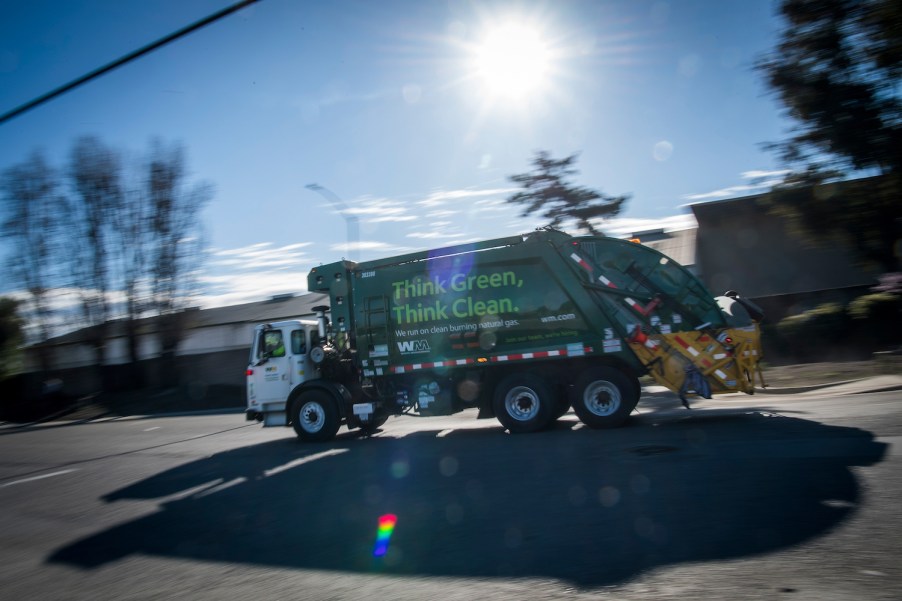
Why Do Some Garbage Trucks Have Surveillance Cameras?
Have you noticed a pair of cameras on the garbage trucks that come through your neighborhood? If so, they may the scanners for an increasingly common surveillance technology called an automatic license plate reader (ALPR) system. Authorities in many cities have installed these systems on garbage trucks to sweep the streets for stolen or wanted cars. Other cities have objected to what they see as a civil rights violation.
What are automatic license plate readers?
Automatic license plate readers (ALPR) are engineered to record the plates of traffic that passes by them–or parked cars they pass. They then lookup these registration tags in realtime, warning the authorities of any vehicles of interest.

ALPR systems require a computer, an internet connection, and one or more scanner cameras. Early systems were too large to be mobile and were mounted at intersections or on toll booths.
When vendors invented more compact systems, police began to mount these on police cars. A police officer with an ALPR system can park and monitor traffic, getting alerts in real-time if any passing car is wanted, has expired registration, or even if its owner has a suspended driver’s license.
A modern system mounted at an intersection, or a town’s border can warn a dispatcher if a vehicle of interest passes by. A police officer can then try to intercept said car and serve them with a moving violation.
Why are cities mounting ALPR systems on garbage trucks?
An ALPR system on a garbage truck identifies and records every license plate on every street the truck navigates. This way, the city can sweep its streets weekly for lost or wanted cars.

Scanning parked traffic is another use of ALPR. Traffic enforcement officials use it to quickly identify any unregistered vehicles parked on a public street, and to serve that vehicle with a ticket. In addition, if there is an APB or a stolen vehicle report out on any parked car, local authorities may want to follow up.
Another use of data on parked cars is to reverse-engineer a suspect’s driving habits. If a detective began to investigate someone in a city with ALPR data, they might be able to identify their home, workplace, and anywhere they frequent–just based on ALPR data.
Is it ethical to install a camera on a garbage truck?
Some cities have proposed ALPR systems on garbage trucks and found the voters or their representatives resistant to the idea. Some states also regulate how long a municipality can store ALPR data on innocent civilians’ driving and parking habits.

When the mayor of San Jose, California proposed mounting ALPR systems on garbage trucks, city councilman Chappie Jones voted against it.
Jones told CBS News that he found the surveillance measure “a little too extreme.” He compared the idea of scanning every innocent resident’s car’s location with every garbage route reminiscent of George Orwell’s bleak “1984” SciFi novel about a brutal police state.
The mayor admitted that surveillance gives people an “icky” feeling. But despite Jones’ protests, the measure passed with a 4-1 vote.
Next, read about how police do use ALPR readers to stop crime or watch the Washington Post’s deep dive into privacy concerns in the video below:



